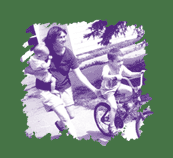






| > | Case Management | |
| > | Family Assessment | |
| > | Family Support | |
| > | Parent Education | |
| > | Substance Abuse and Mental HealthTreatment | |



Free To Grow
Mailman School
of Public Health
Columbia University
722 West 168th Street,
8th Floor
New York, NY 10032
Mailman School
of Public Health
Columbia University
722 West 168th Street,
8th Floor
New York, NY 10032

|
|
  |
||
|
Beyond Risk: Improving Assessments to Keep People Safer Family Assessment This paper was originally written for child welfare with a strong perspective to include neighborhood residents in partnership with agency service providers in conducting family assessments. The principles of conducting assessments in the manner described in this paper are consistent with Free To Grow and Head Start. Many staff that do family assessments are neighborhood residents, are former Head Start families, and bring a personal connection to the process – rather than the more formal and clinical assessments often conducted by professional service providers. The information in this paper is intended to assist programs looking to engage a broader range of people in doing family assessments, a broader range of people providing assessment information about the family, and in taking a broader look at the family strengths and needs. A broader perspective on family assessment assists your program in integrating your family, community and partnership strategies. It elicits more information about the family, so that your family strengthening efforts can be more targeted. It identifies those families and extended friends and neighbors who may be appropriate for leadership development and community strengthening. It supports the partnerships to work more closely together to address the family and community risk and protective factors. Download Related Documents
|
|
Disclaimer Free To Grow is a national program supported by the Robert Wood Johnson Foundation and the Doris Duke Charitable Foundation with direction and technical assistance provided by the Mailman School of Public Health of Columbia University. |